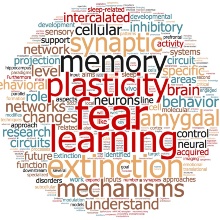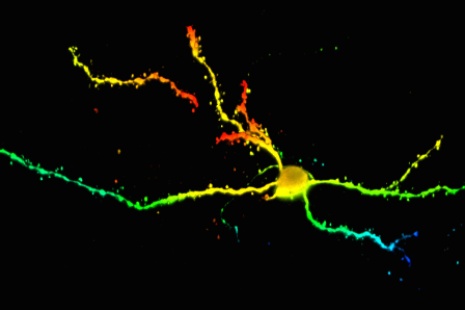Main topic of research
Physiology of associative learning and memory
All organisms continuously have to adapt their behavior according to changes in the environment in order to survive. This is particularly important when learning to predict threatening or dangerous situations. Such experience-driven adaptations in behavior are mediated by modifications in brain circuits. We are interested in how brain function changes during learning and memory processes. We focus on classical (Pavlovian) fear conditioning and extinction of fear in mice, a powerful model to study neural mechanisms of associative learning and memory formation.
Our goal is to identify and study synaptic and cellular substrates of neural circuits in a brain region called the amygdala and fear-related areas that underlie fear and extinction memory. Towards this end, we combine a range of techniques including ex-vivo slice electrophysiology (patch-clamp), imaging, molecular biology, viral gene transfer in vivo and optogenetics, as well as behavioral analysis.
Studying fear and extinction memory not only is an excellent model to understand general principles of memory formation in the brain, but also will provide leads on nervous system dysfunction during inappropriate control of fear behavior in conditions such as human anxiety disorders.
Reseach Projects

Ingrid Ehrlich
Prof. Dr.Head of Department
[Photo: Patrick Münster]




